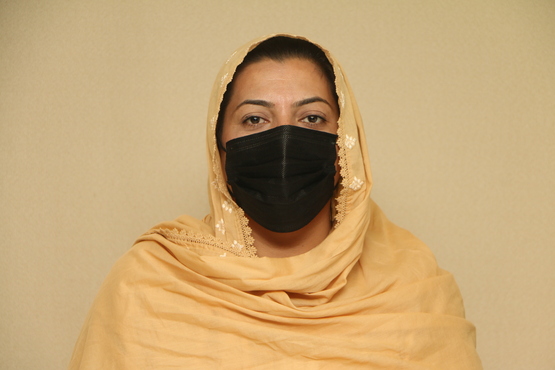Breaking Barriers: Empowering Communities through Women Leadership

For years, Safeena Naseem’s role as a woman council member had little impact. Like other local council women members, she struggled with uncertainty regarding her involvement in the local council and community and lacked clarity about her responsibilities. However, things changed when she participated in a local governance training designed for 45 Village and Neighbourhood Councils (VC/NCs) in Peshawar, Nowshera, and Haripur districts of Khyber Pakhtunkhwa. The training was aimed at strengthening the capabilities of these VC/NC members, with a focus on enhancing citizen participation in the local governance.
Before participating in this training, Safeena lacked guidance and questioned the importance of her role.
"I did not fully understand why my role mattered," she admitted. "At times, I even questioned whether the council itself was making any meaningful difference."
Her disengagement reflected a broader issue faced by women in local governance – the struggle to see their value in spaces traditionally dominated by men.
Nonetheless, Safeena observed the active participation of women in her community, such as Parent Teacher Council (PTC) members and Lady Health Workers (LHWs), who played vital roles in decision-making processes. Their commitment encouraged her to reflect on her own potential. With her husband’s support, who also attended an inception workshop and was moved by the inclusive and supportive environment, Safeena decided to join the local governance training. This decision proved to be transformative.
After attending the training, Safeena felt equipped to understand her role and its significance. The training sessions for VC/NCs focused on the responsibilities of council members under the KP Local Government (Amended) Act 2013, promoting participatory planning for community development.
"It was incredibly fruitful”, Safeena recalled. "The sessions broadened my perspectives and gave me tools I never had before. It made me realise the power of my voice and the influence I could have on my community."
The training was a turning point for Safeena, reshaping her perspective. No longer willing to stay on the sidelines, she stepped into her role with confidence and a clear sense of purpose.
"My people rely on me," she said. "If I do not step up, who will? My role is not just symbolic; it is essential."
Safeena’s journey did not end with her personal transformation. She is now determined to inspire other women in her council. She plans to organise informal meetings to share her experience and encourage women to actively participate in local development planning and decision making. Safeena’s transformation highlights the importance of empowering women for improved local governance. Her journey from uncertainty to leadership demonstrates that when women find their voices, communities witness sustainable and inclusive development.
Building resilient communities requires more than just infrastructure – it demands inclusive participation, shared ownership, and empowered leadership. Recognising this, GIZ Pakistan, on behalf of the German development cooperation, supports the Government of Pakistan to improve local governance and access to essential services such as health and education. The “Strengthening Education and Health Services for Refugees and Host Communities in Pakistan (EHS)” project, implemented in the province of Khyber Pakhtunkhwa, exemplifies these efforts. The initiative strengthens VC/NCs through participatory planning, empowers vulnerable groups like adolescent girls and Afghan refugees by teaching them digital skills, and enhances coordination between the Commissionerate of Afghan Refugees (CAR) and government departments.